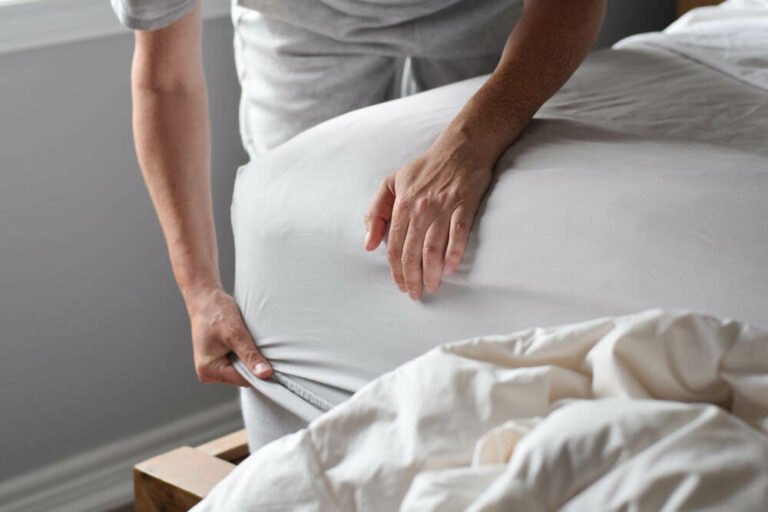If you’re reading this article, chances are you’ve recently been diagnosed with sleep apnea, and you need to purchase a CPAP machine. You’ve done the sleep study, you’ve consulted with your doctor, and now it’s time to get a CPAP machine so you can finally get a bit of sleep.
Sleep apnea is a treatable condition but it can wreak havoc on your sleep before you find the means to get it under control.
A CPAP machine is the most common sleep apnea treatment. An abbreviation for Continuous Positive Airway Pressure, the CPAP machine should stand by the bed of the person affected by sleep apnea at all times throughout the night. It’s a machine designed to pump air through a tube and into a mask that the sleeper wears. Its aim is to keep the airway of the person clear from obstruction during their sleep.
Once you’re diagnosed with sleep apnea, doctors will most likely recommend you to get a CPAP machine and the necessary accessories that come with it.
And now we get to the big question of the article – what will it cost me? How much does a CPAP machine cost without insurance?
Well, the answer is – it varies. It depends on the company (brand) you’re buying from, as well as the features it has. There are, however, some general guidelines on what roughly the prices of CPAP machines currently on the market are, and that’s precisely what we will see in the next section.
What Is the Average Cost of a CPAP Machine?
Generally speaking, most CPAP machines cost between $200 and $1000, although there are machines with advanced features and a host of accessories that cost even more than $1000.
If you have insurance, you may be able to cover the larger part of your CPAP machine, or at least a part of it. However, it will depend on the type of your insurance coverage. The prices listed here refer to the cost of CPAP machines without the cost exemption that your insurance covers. In other words, this is their retail price.
Now, one thing you should keep in mind about CPAP machines is the type of machine you’re buying. There are different types of CPAP machines, and some tend to cost more than others. What are the types?
On the market, you’ll be able to find three types of CPAP machines:
- CPAP (Continuous Positive Airway Pressure)
- Automatic CPAP or APAP (Automatic Positive Airway Pressure)
- BiPAP (Bilevel Positive Airway Pressure)
Usually, the BiPAP machines have a more complex design and more features and hence tend to cost more, somewhere between $1000 and $3000, with the highest-priced models going up to $6000, without accessories.
The average price of APAP machines is around $800.
What Determines the Price of CPAP Machines?
As I mentioned earlier, the cost of a CPAP machine is largely determined by its features, but also the complexity of the design and, of course, the type of machine.
Standard CPAP Machines
The standard CPAP machines usually cost less than the others, because they require a manual setup of the air pressure. These machines push the air out into the mask at just one rate which is unchangeable in the course of the night.
If a CPAP machine includes a humidifier as well, then the price goes up. A heated humidifier makes the air that comes out of the machine warmer and more humid. This is done to prevent dry mouth or nosebleeds in the morning and to increase the overall comfort of the sleeper because sleep apnea sufferers can experience a sore throat or mouth dryness from their machine.
Auto CPAP Machines
The APAP machines are more automatized, as their name says, and hence they also tend to be pricier than the regular CPAP machines. They look pretty similar to the standard CPAPs, but they have better technology.
Auto CPAP machines are designed to adjust the rate at which air gets pushed into the mask automatically, following the momentary needs of the sleeper. This is because the air obstructions that sleep apnea causes tend to happen more at different stages of the sleep cycle – they’re not equally distributed throughout the whole night. The Auto CPAP machines can recognize when the person needs more air during sleep and increase the rate of air being pumped out accordingly.
Also, APAP machines are better at not waking up the person from their sleep (before they naturally wake up, of course), because sometimes they don’t blow as much air into the mask – the sleeper just doesn’t need it at the moment. This, again, has to do with their smart settings, which allow them to follow the air needs of the sleeper at any given moment.
Bilevel BiPAP Machines
BiPAP machines are generally considered to be the most technologically developed machines on the market, but this also makes them more expensive, as we previously mentioned. The Bilevel machines have a feature that distinguishes the air that the sleeper inhales and the one that they exhale. According to this, it also has two different kinds of air pressure that follow the breathing in and breathing out of the sleeper. This is because many sleepers prefer a lower air pressure coming from their machine when they exhale air – it makes for a sounder, better quality sleep overall.
Travel CPAP Machine
Travel CPAP machines are like regular CPAPs, just very convenient for travel. They range somewhere between $450 and $1200, but their average cost is around $800.
They’re very useful if you’re a frequent traveler. With a travel CPAP machine, you’re more likely to stick with your therapy no matter how much travel you’re doing, so in that sense, they’re worth investing in.
What About the CPAP Accessories? Are They a Must for All CPAP Machines?
The answer to that is yes – all CPAP machines need accessories so you can get the most benefit from them. Most of the retailers out there sell the accessories and CPAP machines separately. However, some of them do provide a whole bundle package that has the CPAP machine and all the accessories you’ll need for it to work its magic.
For example, some CPAP humidifiers are sold separately from the CPAP machine, and some are built-in.
Most CPAP machines come together with power supply units, along with a cable or power cord. There are some CPAP machines that require batteries, and you’ll sometimes need to get those batteries separately.
Other stuff that you will have to get on your own is CPAP filters, a CPAP cleaner, a CPAP power bank for mobile recharging, and tubes. Of course, this goes for headgear (like straps, for example) and masks as well. Because we all have different face sizes and variations in contours, it’s best that you take your time choosing a mask and pick the one that fits best – not too loose, not too tight, but perfectly snug.
Be Prepared for Regular Replacements of the Accessories
That’s just the nature of CPAP accessories – you have to replace them regularly. This also means that you will have regular costs.
Stuff like CPAP filters and mask cushions, for example, have to be replaced every month. The tubing parts need to be replaced every three months or so.
Mask cushions typically cost from $20 to $100, while the air filters cost around $5 to $30, depending on the kind of CPAP machine you have. Masks are generally more expensive – they cost about $100 on average or more, although they don’t need to be changed as frequently, only when they show signs of wear and tear.
CPAP Machines and Health Insurance
Before you set out to buy a CPAP machine and all its accessories, you have to check with your insurance provider whether they cover the cost of CPAP machines and how much of it they cover – whether it’s partial, total, or almost total.
It’s not uncommon for health insurance companies to cover CPAP machine costs along with their accessories. In the health insurance jargon, they’re known as “durable medical equipment,” which describes any type of medical equipment used for daily activities in the home that improve your quality of life. Oxygen equipment and wheelchairs are some other examples of durable medical equipment.
The health insurance company covers the CPAP machine costs if they have proof that it is medically necessary for you. This means that in order for your insurance plan to cover the machine, you will have to undergo a sleep study (if you haven’t done it so far) and you should also have your doctor, a sleep specialist, or another type of healthcare provider confirm the veracity of the data on the sleep study and verify to the insurance company that you really need the CPAP machine.
There are insurance companies that opt for alternative approaches – instead of covering the costs for buying a CPAP machine, they rent it out to their clients, for as long as they need it. For this, they require a certain amount of co-pay each month. After the client no longer needs the CPAP machine, the insurance company will take it back.
Conclusion
If you suffer from sleep apnea, then getting a CPAP machine might be critical for obtaining better sleep.
As we saw in this article, there are different kinds of CPAP machines, which is also why there’s such variation in price.
When choosing a CPAP machine, make sure to check whether your insurance plan covers it, and if it does, what the exact sum it covers is. Generally speaking, regular or standard CPAPs are most commonly covered by health insurance providers. They’re also usually the most affordable ones.
But there are two other CPAP machines that you might benefit from more, depending on the nature of your sleep apnea. This, of course, should be discussed with your doctor or sleep specialist, so you can get the best treatment there is.






